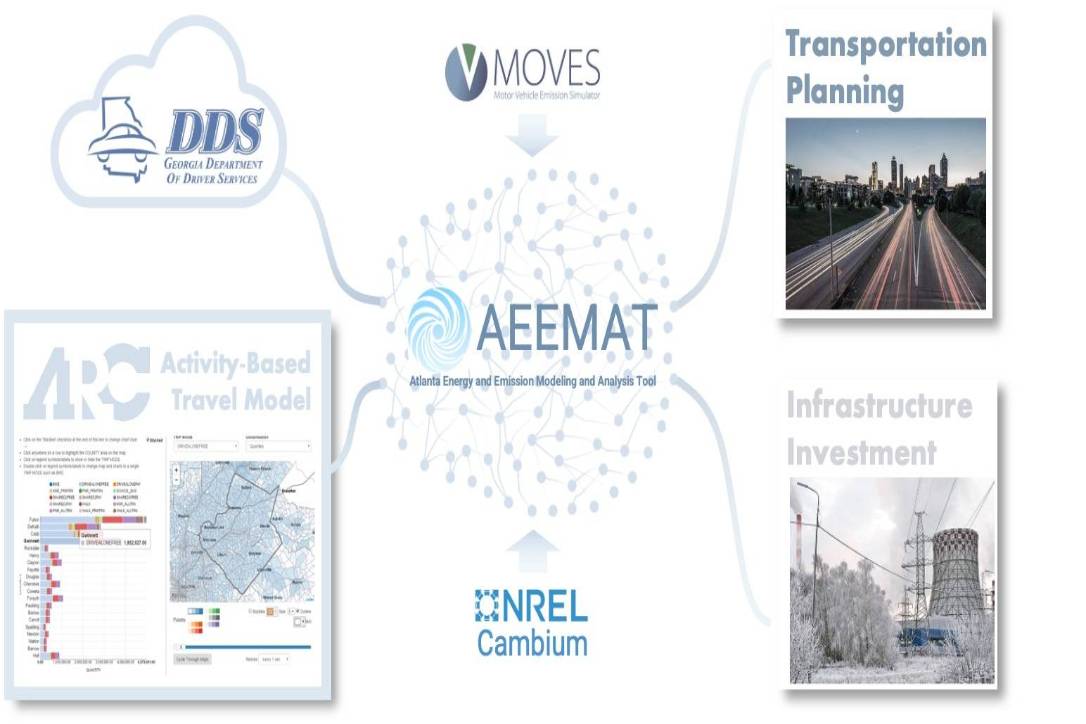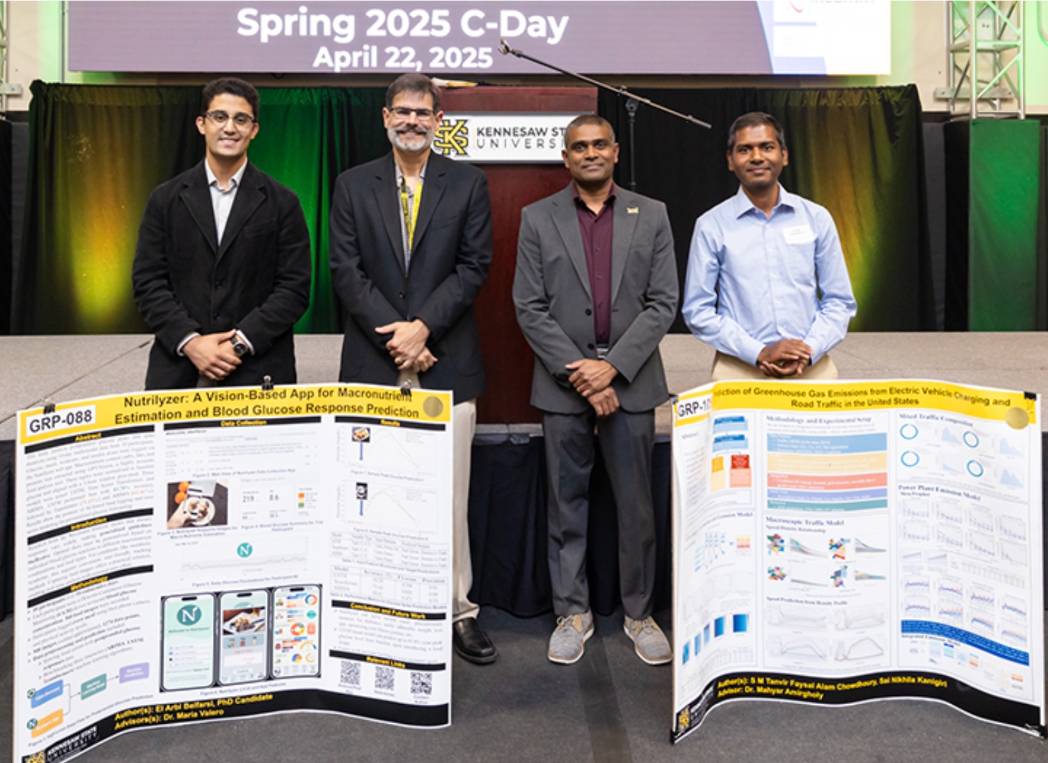 News
News

KSU Researchers to Study Traffic Congestion with AI
Focusing on driverless cars, lower road congestion and smaller environmental impacts, a group of Kennesaw State University researchers will be approaching a new traffic study with the help of artificial intelligence...

Kennesaw State's FUTRA Lab Tackles Traffic Congestion and Emissions with AI Solutions
Much like ants working together in a colony, Kennesaw State University researchers envision a future where driverless cars coordinate seamlessly with one another to enhance traffic flow, reduce congestion, and minimize emissions...

Artificial Intelligence for Planning Transportation and Energy Infrastructure in the Era of Electric Vehicles
As electric vehicles (EVs) gain popularity due to technological advancements, lower operating costs, and environmental benefits, urban planners must navigate new challenges in transportation and energy demand. The growing number of EVs necessitates expanded charging infrastructure, placing additional strain on the power grid. Simultaneously, shifts in travel behavior due to EV adoption can lead to increased congestion, potentially exacerbating emissions from fuel-based vehicles delayed in traffic. To address these emerging complexities, the Atlanta Energy and Emission Modeling and Analysis Tool (AEEMAT) is being developed through a collaboration between Futra Lab at Kennesaw State University and the Atlanta Regional Commission (ARC)...

Transportmetrica B: Call for Paper on "Machine Learning for Macroscopic Traffic Modeling and Optimization"
Macroscopic traffic models are powerful yet efficient tools for analyzing traffic dynamics at large spatial and temporal scales. By abstracting from individual vehicle interactions, macroscopic models offer a computationally efficient and analytically versatile framework for traffic analysis at the network level. The balance between simplicity and explanatory power makes macroscopic traffic models particularly valuable for large-scale traffic analysis, especially in contexts where microscopic details are unnecessary or impractical. Despite the advantages, the reliability of macroscopic models has been constrained by the traditional statistical methods used for calibration, often limiting their accuracy and adaptability in complex real-world contexts. Recent advances in machine learning and data analytics offer new opportunities to address these challenges. ....

Faysal Chowdhury Received the C-Day Award from the College of Computing and Software Engineering (CCSE)
Faysal Chowdhury, a Ph.D. candidate in Interdisciplinary Engineering, has received the Computing Showcase (C-Day) Award for his research on predictive analysis of the trade-offs between reductions in vehicle fuel consumption and emissions through electrification, and the corresponding increase in electricity demand and resulting grid emissions from electric vehicle battery charging at regional and national scales. The College of Computing and Software Engineering (CCSE) C-Day is a biannual event held at the end of the fall and spring semesters, where participating students showcase some of the most innovative and impactful projects at CCSE…









